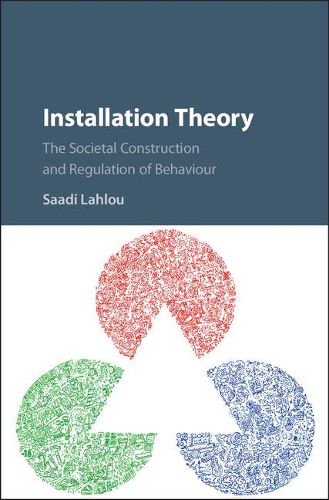Readings Newsletter
Become a Readings Member to make your shopping experience even easier.
Sign in or sign up for free!
You’re not far away from qualifying for FREE standard shipping within Australia
You’ve qualified for FREE standard shipping within Australia
The cart is loading…






Installation Theory: The Societal Construction and Regulation of Behaviour provides researchers and practitioners with a simple and powerful framework to analyse and change behaviour. Informed by a wide range of empirical evidence, it includes an accessible synthesis of former theories (ecological psychology, activity theory, situated action, distributed cognition, social constructionism, actor-network theory and social representations). ‘Installations’ are the familiar, socially constructed, apparatuses which elicit, enable, scaffold and control - and make predictable most of our ‘normal’ behaviour; from shower-cabins or airport check-ins to family dinners, classes or hospitals. The book describes their threefold structure with a new model enabling systematic and practical analysis of their components. It details the mechanisms of their construction, resilience and evolution, illustrated with dozens of examples, from restaurants to nuclear plant operation. The book also provides a detailed analysis of the processes of creation and selection of innovations, proposing a model for the maintenance and evolution of social systems.
$9.00 standard shipping within Australia
FREE standard shipping within Australia for orders over $100.00
Express & International shipping calculated at checkout
Installation Theory: The Societal Construction and Regulation of Behaviour provides researchers and practitioners with a simple and powerful framework to analyse and change behaviour. Informed by a wide range of empirical evidence, it includes an accessible synthesis of former theories (ecological psychology, activity theory, situated action, distributed cognition, social constructionism, actor-network theory and social representations). ‘Installations’ are the familiar, socially constructed, apparatuses which elicit, enable, scaffold and control - and make predictable most of our ‘normal’ behaviour; from shower-cabins or airport check-ins to family dinners, classes or hospitals. The book describes their threefold structure with a new model enabling systematic and practical analysis of their components. It details the mechanisms of their construction, resilience and evolution, illustrated with dozens of examples, from restaurants to nuclear plant operation. The book also provides a detailed analysis of the processes of creation and selection of innovations, proposing a model for the maintenance and evolution of social systems.